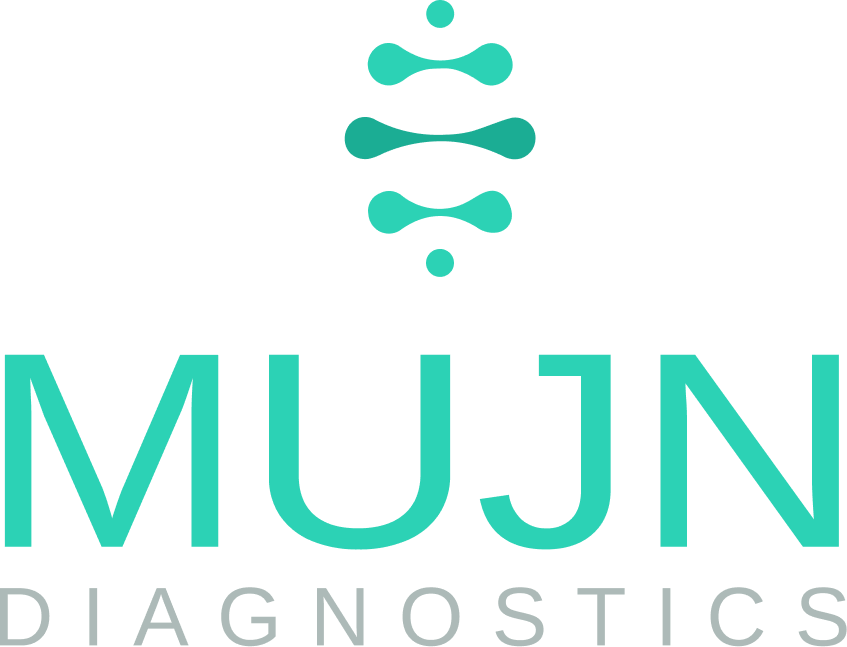MUJN
Rapid Vitamin D Assessment
Easily test and track your Vitamin D levels.
With MUJN, you can get your patient's accurate Vitamin
D levels in less than 20 minutes.
Why Vitamin D Matters?
Vitamin D is one of the most fundamental nutrients our body needs for general health and cognitive function.
MUJN Vitamin D Assessment

MUJN offers a quantitative Rapid Vitamin D Assessment exclusively through practitioners or healthcare centers.
Discover your patient's Vitamin levels in less than 20 minutes and offer them early interventions.
The Global Vitamin D Deficiency Epidemic
Vitamin D deficiency is a global public health issue, affecting around 1 billion people worldwide, with an additional 50% of the population experiencing vitamin D insufficiency. This deficiency is most prevalent among specific groups, including the elderly, obese individuals, those with darker skin tones, those living in northern climates, individuals with nutritional deficiencies, and those with genetic predispositions.
Low Vitamin D levels
are common in people who have...

Darker skin tones

Obesity

Limited sun exposure

Genetic predisposition

Nutritional deficiencies
Our Rapid Vitamin D Assessment offers a simple and precise method for measuring your Vitamin D levels. By identifying deficiencies early, you can help your patients take proactive measures to optimize brain health.
Contact us today, If you are a clinician and want to provide our MUJN Rapid Vitamin D Assessment to your patients.
How does the MUJN Vitamin D Assessment work?
Finger prick sample collection
Vitamin D levels & test report
Recommendations provided
Retest every 3-6 months
Our value.
Help your patients feel better, faster with MUJN POC Assesment Diagnostics.
For Functional and Integrative Medicine Practitioners
Mood Disorder Clinics

The MUJN Difference.
Exceptional experiences.
We are passionate about Integrative Medicine and committed to providing patients and Integrative Medicine professionals with the most complete and accurate information for the best possible outcomes.
Dedicated to innovation.
At Mujn Diagnostics, we are constantly searching the scientific literature for validated technology to improve our systems. We take pride in the robustness of our systems, regularly testing for accuracy, privacy, and security to ensure top performance.
With just a simple finger prick, this at-home vitamin D blood test lets you check for vitamin D deficiency or toxicity in the comfort of your own home.
But why does vitamin D matter in the first place?
Vitamin D plays a vital role in the body’s ability to regulate the absorption and levels of calcium and phosphorus. It also greatly influences your ability to maintain a healthy bone structure, reduce inflammation, and promote cell growth.
Commonly referred to as the “sunshine vitamin,” vitamin D is a fat-soluble vitamin that is stored in the fatty tissues of the body and is released when sunlight is limited. We typically get 50-90% of our vitamin D from sunlight itself, with the remainder coming from our diet. Vitamin D is mostly found in foods like fatty fish (sardines, salmon, mackerel etc.), egg yolks, and fortified dairy products.
Lack of vitamin D or severe vitamin D deficiency is also believed to cause an increased risk of serious illnesses like:
- Cardiovascular Disease
- Many Different Types of Cancer (such as breast cancer)
- Diabetes
- Dementia
- Alzheimer’s
- Erectile Dysfunction
- Infertility
- Parkinson’s Disease
- Multiple Sclerosis
- Osteoporosis
- Osteoarthritis
- Rheumatoid Arthritis
- Psoriasis
- A variety of autoimmune diseases
- Fibromyalgia
- Periodontal Disease
- Schizophrenia
Some Symptoms of Vitamin D Deficiency
Vitamin D is widely known to be essential for maintaining bone health as it helps the body use calcium, but if you have low vitamin D levels there are a wide variety of other symptoms one can experience:
- Fatigue
- Depression
- Joint Pain
- Muscle Weakness or Pain
Your results will contain your personal level of vitamin D and whether it is low, normal, or high as compared to someone who shares a similar demographic profile as you (age, gender, etc.).
If your results indicate that you may have vitamin D insufficiency, we will provide guidance and general recommendations to help improve low vitamin D levels. We might also suggest other lifestyle changes that are often helpful in getting your body’s levels within the recommended range.
Low vitamin D levels can result in vitamin D deficiency. Vitamin D deficiency can lead to symptoms like fatigue, depression, joint pain — and more. In addition, low vitamin D levels may also be linked to more serious health conditions like heart disease and bone weakness (in the form of osteomalacia).
The main cause of vitamin D insufficiency is a lack of sun exposure. That’s because your body makes vitamin D when your skin comes into contact with sunlight. Dietary vitamin D sources are few and far between, so sunlight is actually the body’s main source of vitamin D. Fortunately, an at-home vitamin deficiency test that checks vitamin D levels can help you find out if you’re getting enough of this key nutrient.
Risk factors for vitamin D deficiency include the following:
History of gastric bypass surgery
Dairy allergies
Lactose intolerance
Vegan or ovo-vegetarian diets
Fat malabsorption conditions, such as celiac disease, ulcerative colitis, and Crohn’s disease
Healthcare providers often prescribe a high-dose vitamin D supplement to help reverse vitamin D deficiencies as quickly as possible. (However, because too much vitamin D supplementation can result in toxicity, be sure you talk to your healthcare provider before taking high doses of vitamin D.)
Learn more about vitamin D deficiency:
Too much vitamin D supplementation can result in vitamin D toxicity — meaning your body is actually getting an unhealthy amount of vitamin D. Toxicity is the opposite of a vitamin D deficiency, and is linked with excess calcium absorption (which can lead to a condition known as hypercalcaemia).
If you’re worried that you’ve been getting too much sun recently, don’t fret. Frequent sun exposure will not lead to vitamin D toxicity because any excess vitamin D in your skin is also broken down by sunlight — a natural balancing effect.
Common symptoms of vitamin D toxicity include:
- Kidney stones
- Anorexia
- Diarrhea, constipation, nausea, and vomiting
- Bone pain
- Frequent urination
- Drowsiness
- Constant headaches
- Irregular heartbeat
Medical and scientific experts have determined the approximate range for adequate/normal vitamin D levels: 30 – 100 nanograms/milliliter (ng/mL)
- A vitamin D level less than about 30 nanograms/milliliter (ng/mL) is considered inadequate by the Endocrine Society.
- On the other end of the range, a vitamin D level above 100 ng/mL is often viewed as too high. That’s because vitamin D levels higher than 100 ng/mL increase the risk of hypercalcemia ( a health condition where there is too much calcium in the blood and can lead to kidney stones, weak bones, and more).
- It’s important to keep in mind, however, that optimal vitamin D levels vary from person to person (depending on the health conditions someone has, for example) — so it’s a good idea to share vitamin D test results with your healthcare provider.
